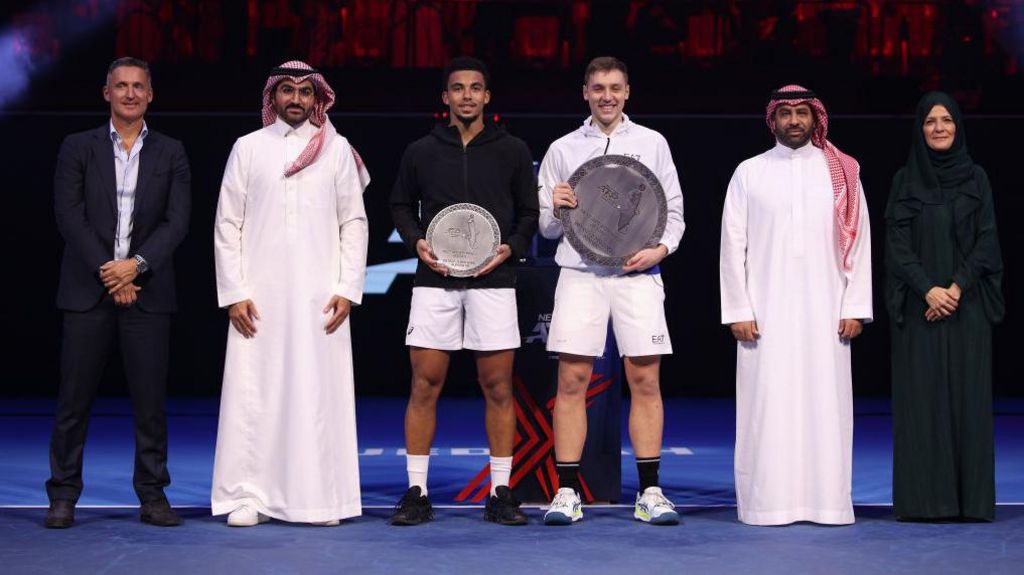Garbajosa details BCL-EuroCup merger, negatiations with EuroLeague / News - Basketnews.com
Garbajosa claims to have never seen the Dubai project by the EuroLeague and is against it. The merger between EuroCup and BCL would have to include a promotion/relegation system, he says, but the negotiations are very difficult.
Credit: Oscar J. Barroso/AFP7 via ZUMA Press Wire - Scanpix Credit Oscar J. Barroso/AFP7 via ZUMA Press Wire - Scanpix
Credit Oscar J. Barroso/AFP7 via ZUMA Press Wire - Scanpix The conflict between FIBA and the EuroLeague has been going on for decades. While some positive steps have been made recently, the issue still remains present.
For the first time since the introduction of the FIBA windows into the international competition format, the EuroLeague allowed their players to leave their respective clubs to play for national teams this season.
Additionally, talks have been going on about a possible merger between two competitions - the Basketball Champions League (BCL) and EuroCup.
"If we manage to unify the second tier of European competitions, connect it with the national leagues and also with the EuroLeague, there will be a qualitative leap," FIBA Europe's president, Jorge Garbajosa, told Diario AS.
Currently, the EuroLeague features a semi-closed structure with only one or two teams differing from season to season in the competition. FIBA's approach is to reintroduce a relegation/promotion system that used to exist in the EuroLeague before the format change in 2016.
"I want to insist on the approach that there has to be a reward for those who do well and a punishment for those who do badly. Look at the case of Girona in football, which has had a great season and is going to go to the Champions League. That is key for them, and for others who see that they can also have an achievement like this by working [gradually toward it]. On the contrary, we at FEB (Spanish Basketball Federation) manage the promotions and relegations between the ACB and LEB Oro, and the two competitions are better for it. If you don't have that risk of going down, there comes a time when ambition and investment are lost. The competition loses value," Garbajosa explained.
"We need to reach a fan who is not part of our core and who is moved by passion and results. And it is not worth using the NBA as a model because the NBA is, in reality, the most open system in the world," the FIBA Europe executive said. "Everyone competes under the same economic conditions and there is a draft to revive the worst projects. It's not like that in Europe. Either we promote competitiveness with our vision and tradition, or we lose value."
While the communication is constant, Garbajosa says, the two parties haven't made any concrete steps toward the eventual merger.
"We are working on it, but it is a complicated negotiation at the core. They are two competitions with their pros and cons. The problem is that we are already halfway through May, so for next season it is not impossible, but it is difficult to reach an agreement because there is much more [than the EuroLeague]: there are the domestic leagues and the FIBA windows," he said.
The EuroLeague is mostly comprised of cycles that revolve around the purchase of broadcasting rights. Currently, the league has a 10-year agreement with IMG, who bought the broadcasting package in 2016.
As the current deal nears its end, multiple different scenarios are being discussed about how the league could be improved both competitively and financially. Rumors about a possible expansion have surfaced some time ago.
"We would like a twenty-year agreement. That's what we're looking for," Garbajosa says. "We have a plan until 2031 and another one until 2041. We know where we want to go. As soon as the EuroLeague defines its plan, we have to reach an agreement."
"During the February window, in national team matches, 170,000 tickets were sold in European venues. That is not only good for FIBA and the national teams, it's [also] positive for all of basketball," Garbajosa revealed. "We are interconnected. You have to provide a good product without forcing either athletes or fans to make a choice."
The hottest topic in the EuroLeague at the moment is the possible inclusion of a team from Dubai, UAE, into the competition. While the ABA League has already admitted the project into their tournament, disagreements still remain in the EuroLeague, and the process has seemingly stalled.
"I've never hidden myself, and as a concept, I cannot like it. Can I come to like it? I don't know, because I don't know what it entails. Nobody has explained what Dubai means in the Euroleague. What does it mean in terms of growth? Is it for a season or permanently, what would it contribute to the competition at an economic and promotional level? As a principle, I don't see it," Garbajosa said.
"When they come and explain it to me, then we can talk," he continued. "I haven't seen the Dubai project. As a logical principle, as [a] FIBA Europe [representative], I do not agree, and certainly not Asia either, because we'd leave our area of influence. But I insist - if they explain it to me and I see that Europe and Asia can benefit from it... For now, there are only rumors. More than being against it, it doesn't fit me."
Support BasketNews so we could make even better content.Link to this article:https://www.brazilv.com/post/30109.html







